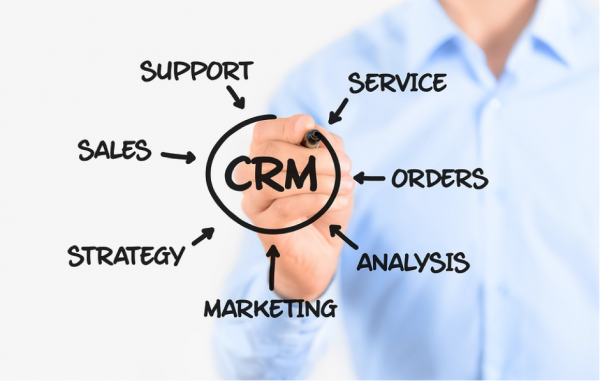In the commercial world, the significance of retaining existing customers and expanding business is paramount. The challenges and costs associated with finding new customers mean that every existing customer is important.
Read more about Business
Customer relationship management (CRM) is the arrangement of strategies and technologies that companies use to manage and scrutinize customer interactions and data during the stay of a particular customer.
Customer relationship management (CRM) helps businesses to gain an insight into the behaviour of their customers and modify their business operations to ensure that customers are served and satisfied in the best possible way.
CRM structure accumulates customer data across different channels, or points of contact, between the customer and the company, through the company’s website, telephone, live chat, direct mail, marketing materials and social networks.
The goal of Customer Relationship Management is to improve customer service relationships, assist in customer retention, and drive sales growth. Customer Relationship Management improves the customer’s general experience by enabling you to manage direct interactions, from sales to customer service and marketing. It enhances the bottom line and can, therefore, determine profitability, loyalty, and overall success in the business.
In simple terms, CRM is a deliberate approach that allows you to manage your company’s relationship with customers or potential customers and all the data associated with it. CRM applications enable you to manage customers’ data, use it to analyze and forecast trends and customer behaviour, and apply it in your future business strategy.
The better a business can manage the relationships it has with its customers the more successful it will become.
Benefits Of Customer Relationship Management
At the end of the day, Customer Relationship Management is important because your customers matter. Therefore, if you are in it for the long run, you cannot neglect the relationship you have with your customers. The use of CRM systems can benefit organizations ranging from small businesses to large corporations. Some of these benefits include:
Sign up to the Connect Nigeria daily newsletter
Organize and analyze data: CRM lets you access data points in designs that are easy to comprehend and interpret, thereby enabling data-driven decision-making. When you are not able to understand the information, decision-making becomes a tough task. Informed decisions are the result of understanding the information you have in the first place.
Identify and manage leads: CRM can greatly influence the efficiency of the sales process. Through Customer Relationship Management, your sales team can cut down on response times and better manage the relationship with the lead.
Improved products and services: Accumulating customers feedback data and incorporating it into your business gives you a better understanding of customer expectations in relation to the product or service you are offering. These insights can be used to identify customer challenges and improve your products and services to meet customer needs.
Anticipate customer needs: With CRM, you gain direct access to customers’ data such as contact information, purchase history and customer service contact. This information is essential because it enables you to anticipate the needs of your customers, improve your products and services in order to make them happy. Making customer information such as past purchases and interaction history easily accessible can help customer support representatives provide better and faster customer service. Collection of and access to customer data can help businesses identify trends and insights about their customers through reporting and visualization features.
Customer Relationship Management can be achieved by:
- Finding out about your customers’ purchasing habits, opinions, and preferences.
- Profiling individuals and groups to market more effectively and increase sales.
- Changing the way you operate to improve customer service and marketing.
Benefiting from CRM is not just a question of buying the right software. You must also adapt your business to the needs of your customers. If your customers are valuable to your business and you place customer relationships in high esteem, then you cannot overlook the need for Customer Relationship Management as it is direct access for you to improve your customer relationship and still meet the needs of your customers.
Featured Image Source: Tait Pollack
Got a suggestion? Contact us: [email protected]


